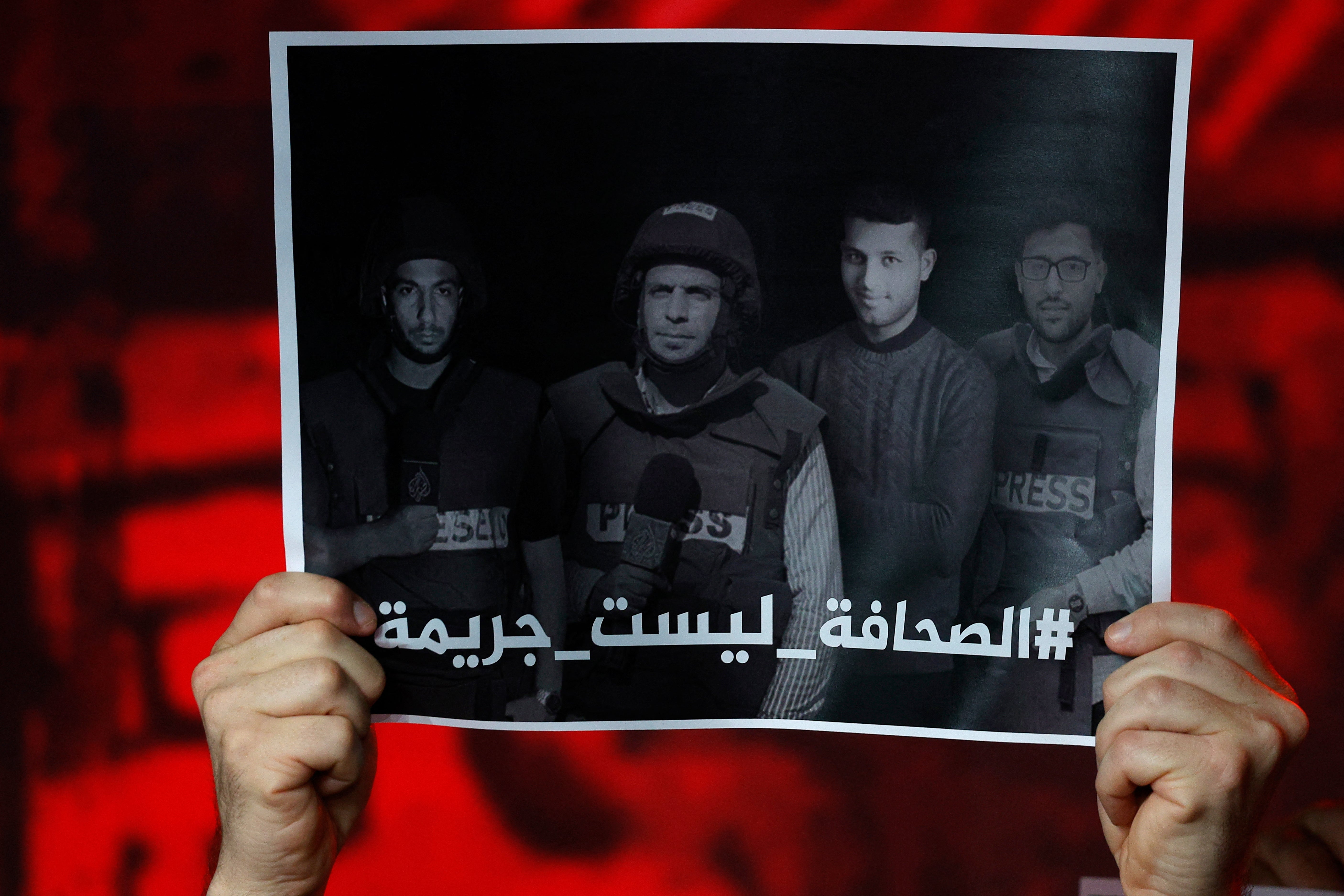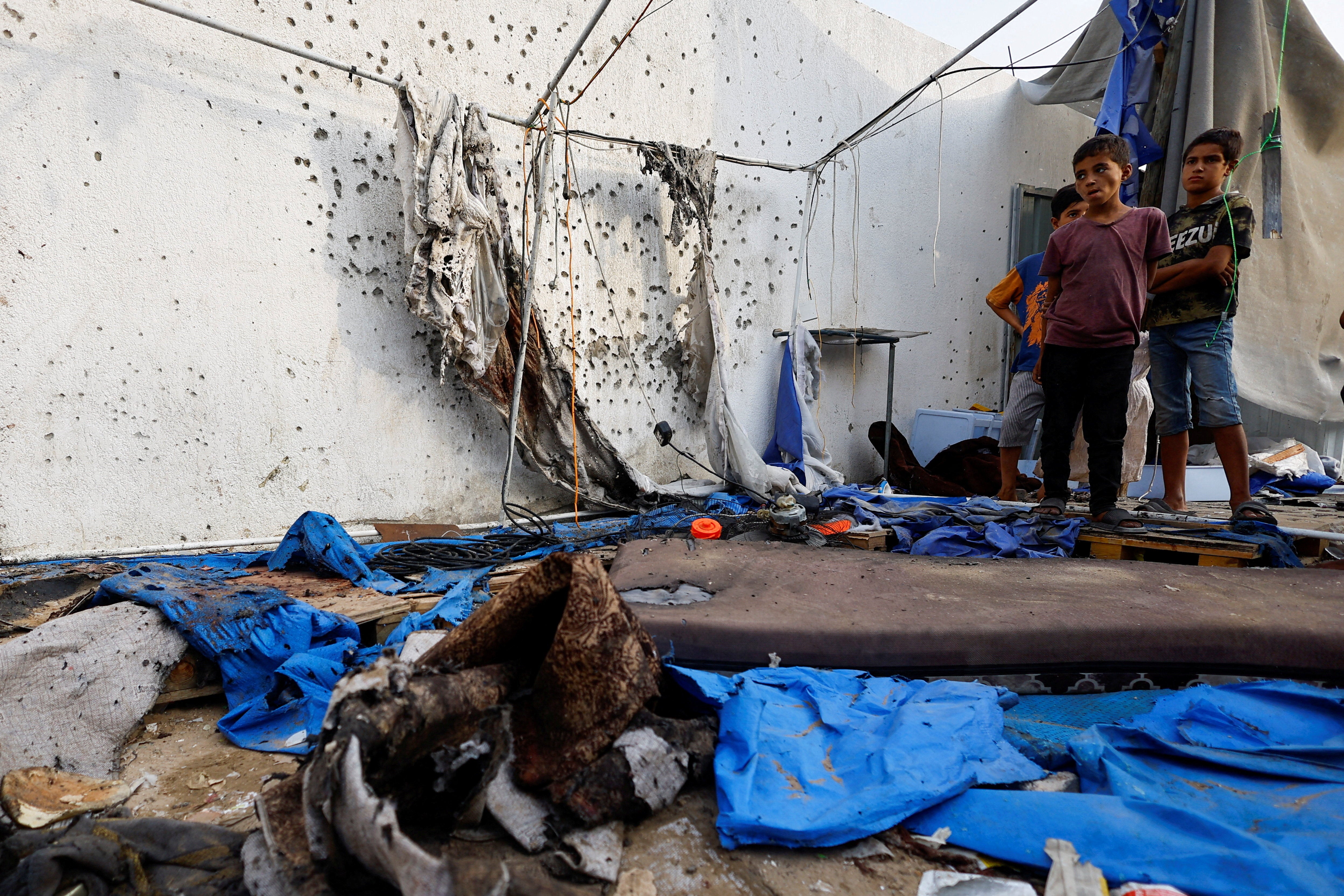The killing of Al Jazeera journalist Anas al-Sharif by Israeli forces in a “targeted strike” in Gaza last week sparked outrage from media organisations, humanitarian groups and foreign governments.
For nearly two years, he reported on the humanitarian crisis that has unfolded in the Strip since Israel began its war in October 2023. The journalist, 28, was described as the “only voice left in Gaza City”.
After Israel barred foreign journalists from entering the enclave, al-Sharif became the most prominent reporter covering the war, which has killed over 61,400 people so far and reduced Gaza to a heap of rubble.
On Sunday night, al-Sharif had warned of a "relentless bombardment" of Gaza City. Shortly after, an Israeli missile hit a tent outside the city’s largest hospital complex, killing him and five other journalists.
The IDF claimed that al-Sharif was the head of a Hamas militant cell and was involved in rocket attacks on Israel, an allegation that has been denied both by Al Jazeera and al-Sharif himself.
Below, The Independent looks at the career of al-Sharif and how he became the most famous reporter in Gaza.
‘The only voice left in Gaza City’
Since joining the Qatari broadcaster in December 2023, the father of two reported almost daily on the suffering of Palestinians in northern Gaza.
Al-Sharif drew widespread attention last January when, during a live broadcast, he removed his body armour after a ceasefire announcement between Israel and Hamas. "I am taking off the helmet that tired me, and this armour that has become an extension of my body,” he said.
In a July broadcast, al-Sharif cried on air as a woman behind him collapsed from hunger. "I am talking about the slow death of those people," he said at the time.
He was hired by Al Jazeera after his social media footage of Israeli attacks in his hometown of Jabalia went viral. “I had never even appeared on a local channel, let alone an international one,” he was quoted as saying by the media outlet Sotour.
“The person who was happiest was my late father. We journalists slept in hospitals, in streets, in vehicles, in ambulances, in displacement shelters, in warehouses, with displaced people. I slept in 30 to 40 different places.”

UN says killings ‘part of a strategy to suppress truth’
In January 2024, al-Sharif’s father was killed in an Israeli airstrike on their home in the Jabalia refugee camp, where al-Sharif was born.
Israel has accused al-Sharif of having links to Hamas, a claim he has rejected. In October 2024, Israel published documents which it claimed showed “unequivocal proof” of the reporter’s ties to the militant group.
Responding to the allegations, al-Sharif said: “I, Anas Al-Sharif, am a journalist with no political affiliations. My only mission is to report the truth from the ground – as it is, without bias.”
He added: “At a time when a deadly famine is ravaging Gaza, speaking the truth has become, in the eyes of the occupation, a threat."
UN special rapporteur Irene Khan on 31 July warned that killings of journalists were a “part of a deliberate strategy of Israel to suppress the truth”.
Raed Fakih, input manager at Al Jazeera, told the BBC that al-Sharif was "courageous, dedicated, and honest – that is what made him successful as a journalist with hundreds of thousands of social media followers from all over the world".
"His dedication took him to areas where no other reporter ventured to go, especially those that witnessed the worst massacres. His integrity kept him true to his message as a journalist,” Mr Fakih said.
"In our last conversations, he told me about the famine and starvation he was enduring, about how hard it is to survive with so little food.”

Hundreds gather to mourn journalists killed by Israel
In a pre-written final message, which was posted to al-Sharif's X account shortly after his death, he said: "If these words of mine reach you, know that Israel has succeeded in killing me and silencing my voice."
Al-Sharif said he had "lived through pain in all its details, tasted suffering and loss many times, yet I never once hesitated to convey the truth as it is, without distortion or falsification".
“Do not forget Gaza,” he appealed. “And do not forget me in your righteous prayers for forgiveness and acceptance.”
Hundreds of people, including many journalists, gathered on Monday to mourn al-Sharif and his slain colleagues, whose bodies lay wrapped in white sheets at the al-Shifa Hospital complex.
Al Jazeera denounced the “targeted assassination” of its crew as "yet another blatant and premeditated attack on press freedom".

The strike also killed four Al Jazeera journalists and a freelance reporter: Mohammed Qreiqeh, Ibrahim Zaher, Mohammed Noufal, Moamen Aliwa, and Mohammad al-Khaldi.
The killing of al-Sharif and his colleagues brought the total number of Al Jazeera staff killed by Israeli forces during the war to 11, a total which does not include eight freelancers.
Ismail al-Ghoul, 27, and camerman Rami al-Rifi were killed last summer, while freelancer Hossam Shabat was killed in an Israeli airstrike in March.
Al-Sharif’s has been condemned by the UN human rights office, the Foreign Press Association, the Committee to Protect Journalists, the International Press Institute, and Amnesty International, among others.
The Committee to Protect Journalists said on Monday that at least 192 journalists had been killed since Israel launched the war in Gaza.
Iran claims it detained thousands of suspects during war with Israel
Madonna urges Pope Leo to go to Gaza ‘before it is too late’
New Zealand MP evicted from parliament after passionate Gaza speech
Australia’s PM Albanese says Netanyahu ‘in denial’ over suffering in Gaza
Israel accused of ‘attempt to silence’ as UN says 240 journalists killed in Gaza
‘Just horrific’: Witnesses tell how missiles tore through journalists’ tent in Gaza







